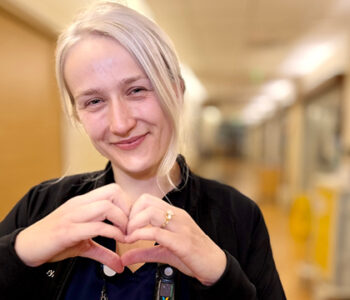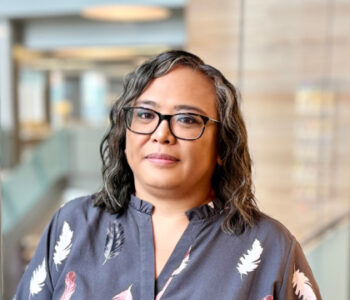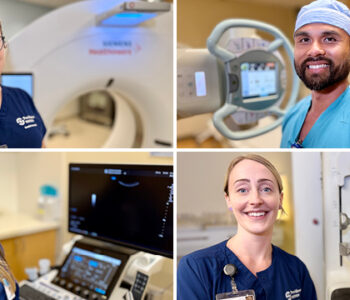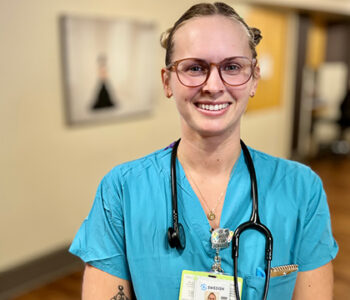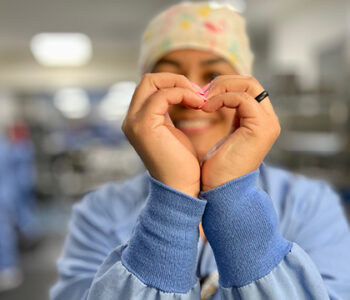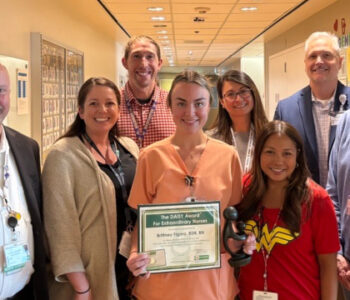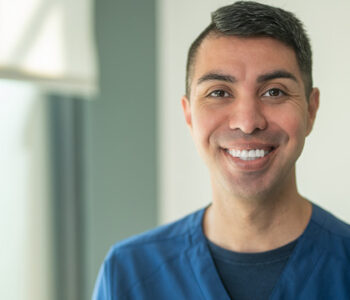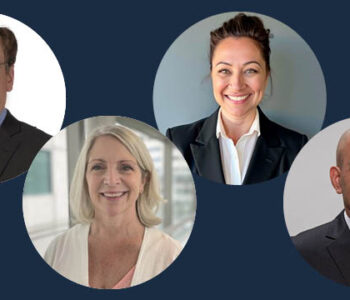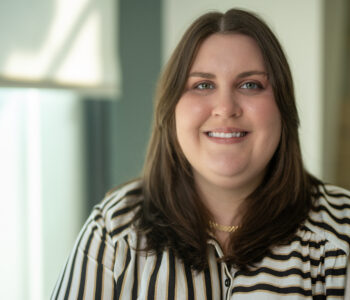 Job Spotlight
Job Spotlight
One caregiver’s calling to help mental health patients in the community
Some graduates take a meandering path to find their true calling, but Kelsey Hill, Lead Social Worker-MSW at Providence Swedish Ballard, discovered what gives her joy soon after college: supporting mental health patients who greatly need assistance. After studying psychology and sociology at the University of Arizona, an internship with an adult probation department, and a case management position at an outpatient mental health clinic where she was exposed to patients at a psychiatric hospital, Kelsey said things clicked for her. “I absolutely fell in love working with people with substance use disorders and mental health disorders, and with finding resources for people who have a particularly high support need in the community.”
A big move at a tough time, made easier by Providence Swedish
When her partner was given a professional opportunity in the Seattle area, Kelsey began looking for work nearby herself. Swedish piqued her interest. Says Kelsey, “Swedish as a system not only had job opportunities that matched my experiences and my professional goals, but also was really appealing as an employer in terms of pay and benefits offered, as well as union representation. And in just even looking at all the jobs they had available to me, it showed me there’s a lot of social work presence in the healthcare network—that social work is valued here.”
Kelsey said she was able to apply for a wide variety of jobs that she was qualified for. “I cast a wide net hoping to increase my odds of being hired. My bosses will tell you the same story. It’s really funny. They’re like, ‘Oh, you’re the girl who applied a million times.’”
But while her job search yielded good results, moving in the height of the pandemic was challenging. “We had to find our place to live online instead of viewing it in person. There were online interviews. We were told not to eat with coworkers or be in the same space. It was hard to get to know people at first.”
Growing with the help of leadership
Also challenging, Kelsey didn’t have the correct license when she first started, but leadership helped resolve that and get her onboarded so she could begin working. “To say that they provided me with ample patience and education to get up to speed on Washington-specific requirements is an understatement,” she says. “Every time I said I would like opportunities XY and Z in order to learn, they encouraged and enabled me to do everything that I’ve wanted to do in the system, such as picking up Med floor shifts, floating the other campuses, and experiencing medical social work that I hadn’t before. I’ve never been so supported by leadership as I have in this job.”
A culture of belonging
A year and a half after joining Providence Swedish Ballard, Kelsey calls it her “home away from home.” And she says there’s a sense of belonging, that all are welcome.
“When I refer to my girlfriend, people don’t think I’m referring to my best friend. At previous jobs, maybe I wouldn’t reveal that part of myself personally, or only would after I took the time to vet the safety and the politics of the space that I was in. As a queer person you kind of have to wonder, ‘Can I disclose in this type of environment?’ But here, meeting other queer people in the workplace, I just automatically was like, okay, I feel like I can share about my personal life openly, without consequence or concern.”
Kelsey said a lack of reaction was the biggest surprise. “A lot of people asked why I moved here, and when I told them it was because of my partner’s work, the best surprise was that there was no reaction. Before, there always was—like people would say, ‘I have a gay friend; don’t worry about it.’ At Providence Swedish Ballard, there’s no reaction. That indicates to me it’s perfectly normal that you have a same sex partner, and I couldn’t care less about that. It’s just kind of nice that nobody cares.”
A culture of genuine caring
Kelsey says not only does Swedish Ballard have a welcoming team, but everyone is committed to the highest level of care.
She shares a story about a nonverbal young adult brought into the unit as a John Doe, unaware of his name or where he was from, found naked in the snow. Says Kelsey, “It was one of the most challenging cases I’ve ever had from a case management standpoint. How do you help someone if you don’t know who they are or where they came from?” But Kelsey’s team did help him over an extended period of time on the unit. “His medication and treatment regimen allowed him to improve in his mental status and abilities. He put on weight and began talking, then started building hobbies and interests, as well as relationships with staff. Finally, he was able to go to a home that accepted him for permanent residency, where he has clothes and food and video games and people who care about him. I get goosebumps talking about it. Collectively, as a team, we allowed him to have a nice life. Having those moments is what I look forward to.”
Kelsey shares that everyone takes their work seriously. “Everyone has a pretty high standard for what patient care looks like, and pride in their work, not just my social work counterparts, but the nursing staff, the occupational therapists—everyone on the floor. I’ve worked in a lot of different psychiatric facilities and my experience here has been vastly different. All of the staff is just very well versed in how to be compassionate and effective and understanding of people with trauma history or severe psychiatric illness. And that to me is probably the number one thing that makes me feel good to say I work there. I work at that place where we treat patients the way they should be treated.”
If Providence Swedish Ballard sounds like a place you’d like to work, check out all job openings.

